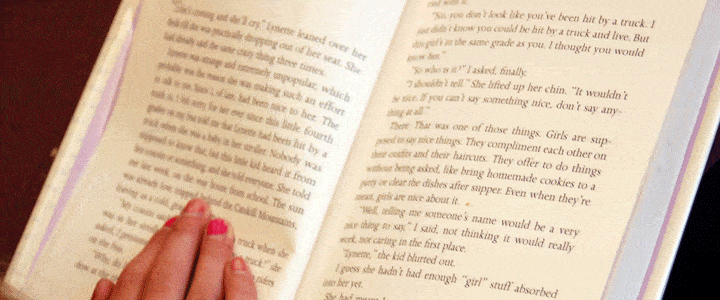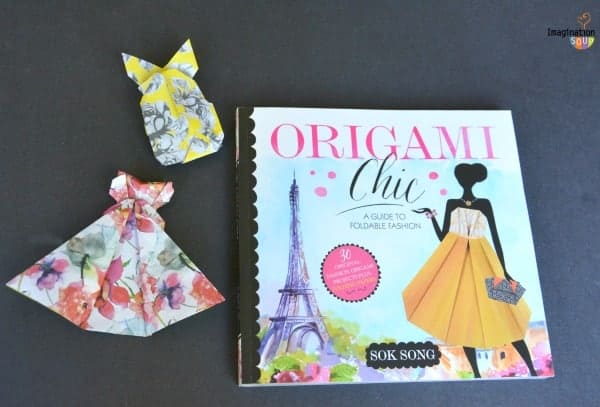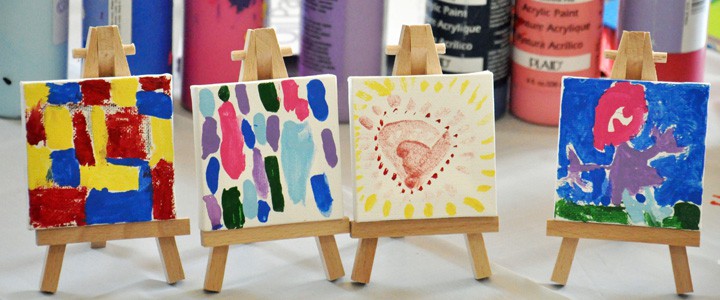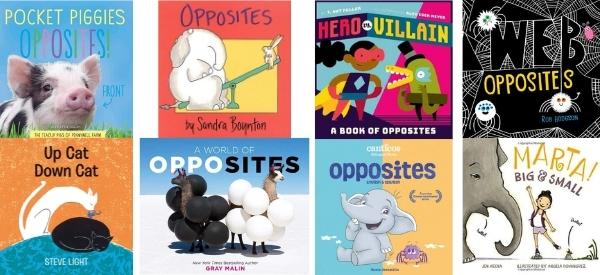How Playing Pretend Like Our Kids Makes Us Better Parents (and People)
This post may contain affiliate links.
written by Mister & Mischief (Jeff and Andy Crocker)
Good morning or afternoon or evening, we’re so glad you’re interested in playing pretend. We are Jeff and Andy Crocker, a married creative team, specializing in interactive and experiential theater, or in other words, creating imaginary worlds in which others get to play. We’ve worked across theater, film, and game festivals, museums and institutions, and some very large theme parks with which you’re probably familiar.
While we’ve been together for a couple decades and supported each other’s creative pursuits, a bolt of inspiration brought us together in 2018 and we’ve been creating work as Mister & Mischief ever since.
One of our tenets in creating delightful and mischievous experiences is to turn strangers into pals, and we offer imagination assistance for all comfort levels by crafting a space that is welcoming for everyone to play. It’s no secret that kids access their imagination more quickly than adults and after having observed our 7-year-old daughter and her friends, we want to share five ways playing pretend like our kids can make us better parents …and people.
How Playing Pretend Like Our Kids Makes Us Better Parents (and People)
Imagination is a Muscle
I’m sure we are not the first to notice that imagination is a muscle. Kids are getting their reps in every day. In our house, you can set a clock to our daughter making up a brand new passionate and epic song every night immediately after dinner.
A lot of adults, however, don’t have as many outlets or the encouragement to exercise their imagination on a regular basis.
Many grown-ups see play as either a special occasion or an obligation. Whether your niece is insisting you join her tea party, or your company is forcing you to do a team building exercise—if these are the only times we’re letting ourselves play, of course it’s going to feel uncomfortable (at best). Just like if you only take one Zumba class a year, you’re going to feel incredibly sore after a night out of dancing.
Find little ways to play every day. Find ways to exercise your imagination, work out that imagination “muscle” and condition it for stronger and stronger daily usage. Need some inspiration?
1. Draw faces on hard-boiled eggshells
2. Sing a song about being stuck in traffic instead of cursing
3. Leave a ridiculous voice memo for a friend as a made-up character and challenge yourself to go as long as possible without laughing
These simple ways to play will keep your imagination limber, ready to work, and inspire those around you to do the same.
Imagination is Social
This is another aspect where kids absolutely have an advantage over adults, and a great place they lead us by example. Being playful with someone is one of the most direct ways to connect in a safe and socially intimate way. A shared laugh can quickly turn strangers into pals, a shared narrative creates unique new memories. Collaboratively built narratives create shared memories that only those who played have access to—this is true for kids playing together, grandparents playing with their grandkids, or even friendly rivalry at pub trivia.
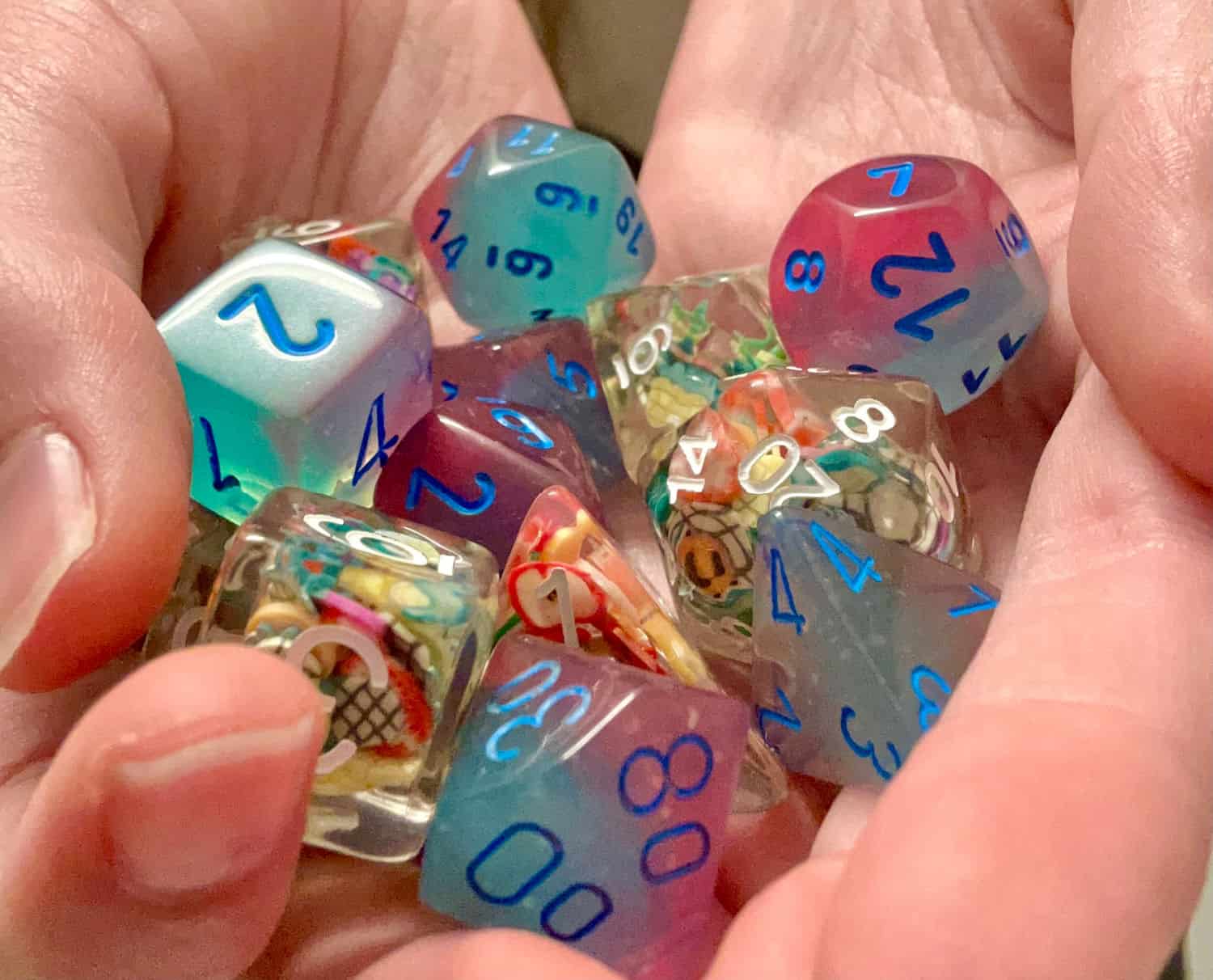
Whether you’re playing “restaurant” or Dungeons and Dragons, enjoying a summer afternoon with your kids or date night out with your partner at an escape room, imagination often involves a lot of social interaction. Solving problems together helps you see and celebrate each other’s superpowers while learning where others might need support.
Imagination is Impactful
There have been multiple occasions where we have heard crying coming from our daughter’s room and quickly walked over to check on her, only to be told quite directly, “I’m playing a story.”
We’ve since learned that when she cries out, “Mother! Help me, I have a terrible burden,” she is existing in her own pretend world, whereas “Mommy, I’m hungry,” exists more in our very real household world.
We have also heard her talk to characters in her stories that are sick, not coincidentally at the same time her grandfather was sick. As her friends at school start to talk about “crushes,” her Squishmallows have been having quite a few weddings. The easy part is seeing how she is processing new information and events in her life in her imagination play, though the hard part is not intervening (unless invited).
Because of where she is in her literacy education, her brain moves faster than she can write, so she leans on her imagination play to process big thoughts and emotions. She might journal or draw as she grows up, maybe make a zine, but right now, the quickest way for her to explore her big feelings is through her made-up stories of witches and warriors.
Allowing ourselves permission to pretend can give our brains the freedom, time, and space to make connections with our foreground and background feelings.

Imagination is Exploration
Role playing is one way to play pretend, as is building with LEGOs (following the directions or not), drawing or singing to your cat or dog. The list goes on. We can write another list about digital screen-based imagination play because under this heading it would be wrong not to point out that Minecraft is massively popular because of its “creative mode” that allows for endless possibilities of building with blocks when you’re not interested in battling it out in “survival mode.”
The exploration becomes more important as we get older and more confident and curious in our social circles or hobbies. The work we put into creating spaces for folks to be imaginative and mischievous is always buoyed by those that want to bring their own creativity into our spaces. They are the ones that are going to listen well and jump right in.
Imagination Offers Infinite Ways to Be Right

Though spats and disagreements may exist in the world of imagination, there are infinite ways to be right, and if it’s not the wrong choice, then together, you can make it the right one.
Playing pretend is a toy, not a puzzle—a puzzle has one right answer, whereas however you play with a toy is right.
In 2021, we adapted a story called 40 Watts From Nowhere about a pirate radio station in the 1990s. In our experience, five guests at a time were invited to run the radio station. The secret station was filled with over 500 CDs and records that were all available for them to play. The story we told was scripted, but the guests were required to play music during the experience and keep the station on the air. Whatever they wanted to play was right, we gave them a massive collection and their job was to decide what kind of DJ they wanted to be and what they wanted to play—old school hip hop, grunge, showtunes, French girl group garage rock? No one was defining that they could or couldn’t play.
When you’re playing pretend with kids, with adult friends, with grandparents, or all of them all at once, you are activating your brain in so many ways while also building bonds and creating core memories that won’t easily be forgotten. Imagination play can go deeper– and last longer– than you can imagine.
About Jeff and Andy Crocker

With roots firmly planted in the worlds of theatre and themed entertainment, Mister & Mischief (a.k.a. Jeff and Andy Crocker) create fun-forward journeys beyond the fourth wall. With an unexpected blend of storytelling and real-world engagement, the husband-and-wife team help foster curiosity and connection through immersive experiences that encourage participants to revisit an opportunity to play pretend. Jeff and Andy have created experiences for clients including Universal Studios and Walt Disney Imagineering and their award-winning work has been praised by The New York Times, Broadway World and No Proscenium. They were recently named in Blooloop’s International list of Top 50 Immersive Influencers.


